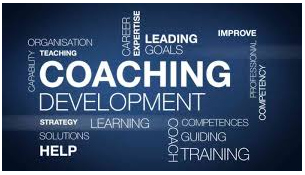Coaching and mentoring and change during tough economic times
Coaching and mentoring and change during tough economic times
In coaching the past few decades has produced many changes to the business environment. High performance is no longer an option, whether the organisation competes regionally or in the global marketplace. Technological changes bring about new challenges on a daily basis but are not the only source of increased pressure within organisations.
Currently, we are experiencing a global decline in the economy, with the depth of downturn different from country to country, however, still very much a reality if not a fear or even a threat to organisational survival.
Employees who adapt and change along with the organisation are an essential key to business survival
If organisations are to sustain a healthy competitive advantage, employees who are productive and willing to continually learn and adapt as their roles change along with the organisation are invariably an essential key to the survival of the organisation at large.
Coaching enables employees to exceed in their current roles and increases their potential for future roles
Organisations today need people who at best exceed expectations and at worst meet the required standards. Managers with good people skills can achieve that level of performance from their staff using coaching and mentoring techniques. Therefore coaching can be seen as the process by which employees gain the required skills, abilities and knowledge to develop their skills professionally and become more effective in their roles. When employees are coached both their performance in their current roles and their potential in future roles is increased. Coaching and mentoring and change happens therefore it boosts performance in ensuring that employees know what is required of them and how best to achieve their objectives.
Sustaining employee motivational levels
When mentoring top performers, a climate of coaching them to take on tasks and responsibilities beyond those designated in their job descriptions is created. Managers share their experience, wisdom and knowledge as well as professional contacts in order to sustain the motivation of those whom they mentor, maximise their contribution to the organisation and demonstrate an interest in their professional growth.
Mentoring initiatives exist to orientate new hires, conserve and transfer special skills and to advance the interests of special groups such as women who break through the glass ceiling in overcoming isolsation that diversity in the workforce creates.
An individual will often have more than one mentor
Often, mentoring is one-on-one yet is sometimes also achieved in a group setting whereby an individual may have more than one mentor, each with unique areas of expertise. Coaching and mentoring are very different from counselling although many of the steps involved in the process share distinct similarities. Counselling is frequently one-on-one yet, unlike coaching, is often designed to correct poor performance.
Coaching prevents performance problems at the outset
Coaching is designed to address and prevent performance problems at the outset, stimulating employee commitment and engagement from the very first day on the job. Coaching and mentoring both recognise that employee growth and development do not occur spontaneously, often requiring a concerted conscious effort on the part of both managers and employees. Beyond that, it also takes time and commitment in the sense that it is not just about advocating once-a-year talks following the annual performance review. The best employee development process is ongoing which means implementing coaching at least once a month.
In a business and economic climate fraught with constant change, done correctly, mentoring one employee can also motivate others in the team and the organisation at large.
Coaching and mentoring and change – what can be traced all the way back to the Stone Age
Coaching and mentoring can be traced all the way back to the Stone Age when older members of the tribe or clan often taught younger members how to hunt, gather and prepare food as well as fight off enemies. Yet, although we have come a long way since Stone Age times, the principles and reasons behind the process remain even more critical to business survival in the tough economic times of our modern era.
Enjoy this article on coaching and mentoring and change? Click here to enrol in a mentoring training programme: https://boti.co.za/book-now/


